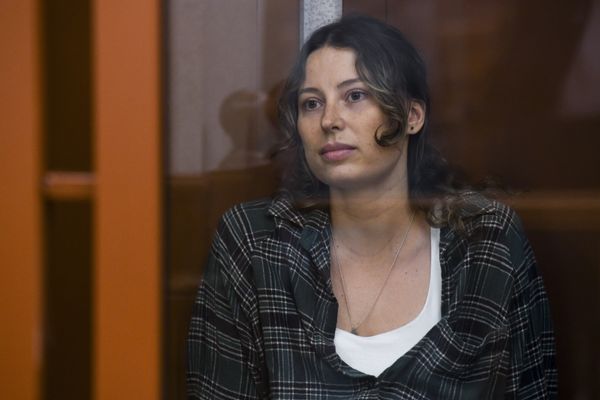
Roman Abramovich, one of the world’s richest men, was finally subjected to sanctions by the UK government after ministers accused him of having “clear connections” to Vladimir Putin’s regime and being among a group of businessmen who had “blood on their hands”.
The owner of Chelsea FC was one of seven Russians worth up to £15bn who had their assets frozen on Thursday and were banned from travelling to Britain in a move designed to dramatically increase pressure on the Kremlin over its invasion of Ukraine.
The sanctions against Abramovich – years after campaigners first raised concerns about his ties to the Russian president – left the London football club in turmoil, with his plans to sell it frozen indefinitely.
After weeks of pressure to act more aggressively against the oligarchs who have made the UK their home, Boris Johnson said Abramovich had been targeted because of his links to Putin. “You have to have clear evidence that they are connected to the Putin regime, and that has been established. That’s why we are going ahead with the sanctions that we are,” he said.
The foreign secretary, Liz Truss, also insisted that oligarchs would “have no place in our economy or society”. She said: “With their close links to Putin, they are complicit in his aggression. The blood of the Ukrainian people is on their hands. They should hang their heads in shame.”
Abramovich was targeted because the government’s Office of Financial Sanctions Implementation suspected that a steel company he had effective control of, Evraz plc, supplied steel to the Russian military to produce tanks.
The move will heap further pressure on Putin two weeks after he ordered troops to invade Ukraine in a bloody war that has seen thousands killed or injured and the Russian military investigated at the international criminal court over accusations of war crimes.
Chelsea FC has been left in limbo by restrictions placed on it that ban any player transfers and the sale of further tickets or merchandise to fans. The club faced further financial headaches when the mobile network and sponsor 3 reportedly demanded its logo be removed from Chelsea’s shirt and stadium.
Government sources suggested the licence granted to the club to continue operating would remain in place until at least the end of the season and act as a “safety net” to avoid calamitous consequences to the wider football system. They said some requirements were likely to be tweaked, such as the cap on “reasonable costs” of £500,000 a fixture.
Evraz shares fell by 11% after the sanctions announcement, before trading was suspended on the orders of the Financial Conduct Authority, the City regulator, “pending clarification of the impact of UK sanctions”.
Abramovich’s stake in the company was worth £1.4bn at the end of 2021, but that sank below £350m by the end of Thursday.
Israel’s national holocaust memorial, Yad Vashem, also said it was suspending relations with Abramovich, who is Jewish and last month agreed a “a new long-term strategic partnership” with the site.
Evraz denied any links with the Russian military, and Abramovich’s lawyers argued before the invasion of Ukraine that he did not fit the criteria for sanctions, saying it was “ludicrous to suggest that our client has any responsibility or influence over the behaviour of the Russian state”.
Abramovich did not respond to the announcement of sanctions against him.
Other oligarchs hit with sanctions on Thursday were Abramovich’s one-time business partner Oleg Deripaska; Putin’s “right-hand man” Igor Sechin; and four men in the Russian president’s “inner circle”: Andrey Kostin, Alexei Miller, Nikolai Tokarev and Dmitri Lebedev.
All have been barred from conducting any financial transactions in the UK, meaning those with property in the country will no longer be able to employ staff such as cleaners, housekeepers or gardeners, or even have contracts for utilities such as electricity.
Meanwhile, the prime minister admitted that he feared Russia would deploy chemical weapons in Ukraine. Johnson said it would be “straight out of their playbook”, following Moscow’s unfounded claim that opponents were developing chemical weapons in the region.
“When they themselves deploy chemical weapons, as I fear they may, they have a sort of maskirovka – a fake story – ready to go,” he told Sky News. “You’ve seen it in Syria. You saw it even in the UK. That’s what they’re already doing. It is a cynical, barbaric government.”
After the sanctions announcement on Thursday, ministers were accused of acting too late to stop oligarchs who feared sanctions weeks ago, removing their assets from the UK. Abramovich’s private jet reportedly left the UK in late February.
The shadow foreign secretary, David Lammy, claimed that Britain continued to “lag far behind” other allies on the number of Putin-linked individuals and entities facing sanctions.
Labour analysis found that the UK had issued 16 times fewer sanctions than Brussels, with Britain targeting 41 Putin-linked individuals or entities compared with 660 spread across the EU.
Lammy demanded that tougher action be taken, such as excluding Beralusian banks from the international payment system Swift, imposing sanctions on all 351 members of the Russian Duma who voted in favour of recognising the self-proclaimed republics in Donetsk and Luhansk, in eastern Ukraine, and limits being set on Russians depositing money in UK bank accounts.
The Labour MP Chris Bryant, who is also the chair of the parliamentary group on Russia, argued it was “absolutely preposterous that we’re only doing all of these measures now – we should have been doing them years ago”.
He said: “We’ve been woefully ill-prepared for this moment, which is why yesterday the EU sanctioned another 160 people and we only sanctioned seven people today.”







